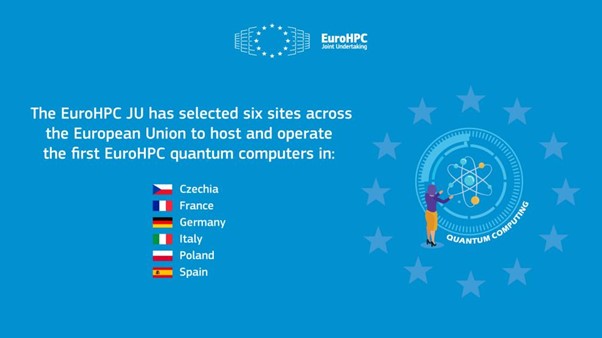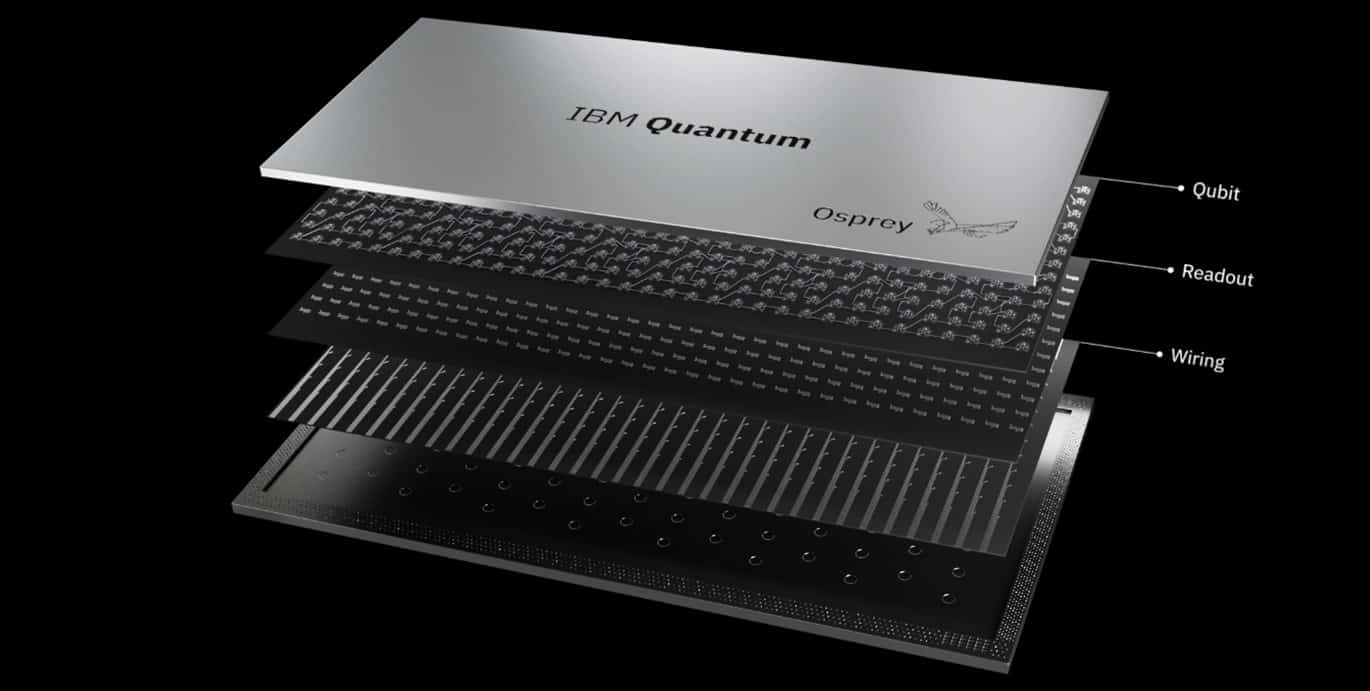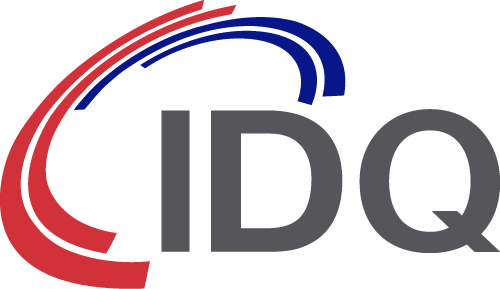Quantum Computing Review Q4 2022
ID Quantique’s Quantum Computing Review Q4 2022 presents a recap of the latest developments in the field. This quarter saw progress in terms of performance enhancements, funding and government support across multiple sectors.
European quantum computing debuts at six selected sites
The European Union has selected six sites to host the first European High Performance Computing (EuroHPC) quantum computers: Czechia, Germany, Spain, France, Italy, and Poland. The move is part of the EU’s efforts to boost its competitiveness in the field of quantum technologies and maintain its position at the forefront of scientific research and innovation. The selected sites will receive significant funding to host and operate the quantum computers, which will provide Europe with cutting-edge quantum computing capabilities. The move is expected to enable scientific discoveries, R&D and new opportunities for industrial innovations.

Quantum investments
Start-ups and companies adopt ion trap technology
In Germany, the National Aerospace Center has awarded a series of contracts to businesses invested in the advancement of ion trap technologies, as part of the broader DLR Quantum Computing Initiative. The five contacts total over €200 million with the stated aim of developing quantum computers based on ion trap technology with at least 50 qubits.
Germany to invest in Quantum Computing Business Cloud
Still in Germany, the government has allocated over €740 million in funding for quantum computing, tens of millions of which will be directed into the creation of a cloud platform for quantum computing applications in Germany. This cloud will provide SMEs, startups, and research institutions with access to quantum computers and other advanced computing resources, thus encouraging the transfer of knowledge and the creation of new products and services. The initiative aims to accelerate the development of quantum technologies and drive the growth of the sector.
Xanadu raises $100M for fault-tolerant quantum computers
Xanadu, a Canadian leader in photonic quantum computing, has closed a $100 million Series C funding round to accelerate its development of fault-tolerant quantum computers. This investment positions Xanadu to accelerate progress towards this goal, specifically building a first module validating their fault-tolerant quantum computing architecture.
Quantum computing comes to Switzerland with UptownBasel’s Hub
Switzerland’s first commercial quantum computer hub has been launched by the UptownBasel Group. Together with IBM, D-Wave, and other national and international partners, the hub aims to accelerate innovation in crucial areas such as life sciences, industrial manufacturing, logistics and sustainability beyond traditional boundaries. It will foster collaborations between its partners, boost skill development, and promote leading innovation projects on quantum and high-performance computing technology.
President Biden signs quantum computing cybersecurity bill into law
The Biden administration has signed the Quantum Computing Cybersecurity Preparedness Act into law, aimed at boosting US quantum technology development and enhancing national security through quantum-resistant cybersecurity measures. The act calls for investment in quantum R&D, creation of a quantum workforce, and development of quantum-safe cybersecurity standards.
IBM unveils its latest development at their annual Quantum Summit
In November, IBM held its Quantum Summit 2022; during which it announced a series of significant advancements and an update on the future roadmap for IBM Quantum. Pride of place went to the new 433 Qubit Osprey processor, which triples the Qubit capacity of the Eagle processor announced in 2021. Other developments included: new quantum software that addresses error correction and mitigation; an update on IBM Quantum System 2; IBMs contribution to the development of quantum safe technologies and an expansion of the IBM Quantum Network.

Some more progressive developments from the Quantum World
Europe plans to launch satellite, Eagle-1, for secure quantum-encrypted communications in 2024, with an aim to develop larger network. It will be Europe’s first space-based quantum key distribution system and will demonstrate technologies for new generation of secure communications. The satellite will prove feasibility of quantum key distribution technology using a satellite-based system in the EU.
Meanwhile, China is expanding its efforts in quantum computing development, with a focus on applications in finance and defense, according to a recent report.
Researchers at the Technical University of Munich have achieved a breakthrough in quantum computing by developing a stable qubit that lasts for 39 minutes, enabling new applications in cryptography and chemical simulations.
And UK launches consortium, UKQuantum, to drive growth in quantum computing sector and establish UK as world leader in the field. The consortium aims to support development and represent the industry with a singular voice. The government appointed an MP as science and investment security minister within the Department for Business, Energy and Industrial Strategy (BEIS).
IDQ in the news:
IDQ showcased at Quantum World Congress
Swiss Government to invest CHF10million in Quantum Initiative
IDQ launches expansion of superconducting nanowire SPDs
IDQ expands QRNG chip range for use in space applications
Orange invites IDQ to showcase quantum secure streaming service



